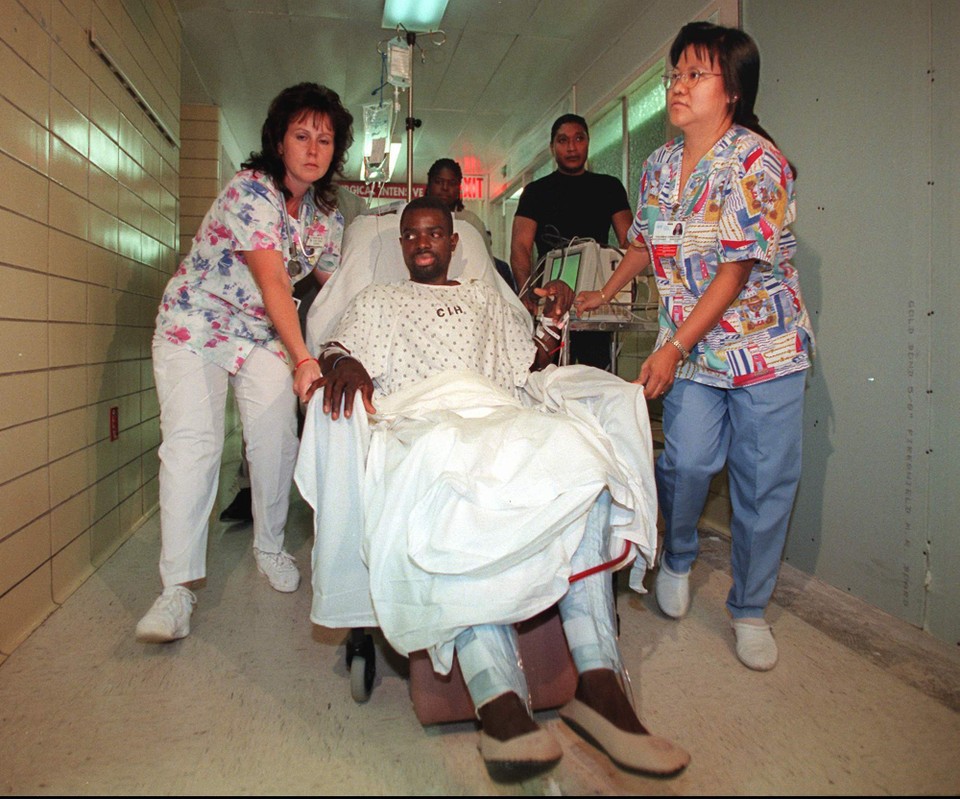
This weekend protests over the death of George Floyd, another black man killed by another white officer raged from coast to coast. Throughout the weekend, Abner Louima’s name started trending on Twitter.
On Friday, New York Governor Andrew Cuomo tweeted: Rodney King. Abner Louima. Amadou Diallo. Sean Bell. Oscar Grant. Eric Garner. Michael Brown. Laquan McDonald. Freddie Gray. Antwon Rose Jr. Ahmaud Arbery. Breonna Taylor. George Floyd. Say Their Names.
While many people are just learning about this case, the Abner Louima assault case shook the city of New York and changed the way people viewed police officers. Who is Abner Louima and why is his name so important in the fight against police brutality?
According to WNYC News, on August 9, 1997, police officers took Haitian immigrant Abner Louima — after yanking his pants down to his knee — in the bathroom of the 70th precinct in Brooklyn. There, Officer Justin Volpe used a broken broomstick to sexually assault the handcuffed man. Word of the attack shocked the city, and Louima would eventually testify in a federal trial that sent two officers to prison. The assault on Louima in 1997 was a major event in the city’s history. It shone a harsh light on police and community relations, which were already fraught.
10 Key Things You Should Know About The Case:
- In the predawn hours of August 9, 1997, Abner Louima was leaving the Club Rendez Vous nightclub in East Flatbush. Police officers were breaking up a crowd in the street when somebody punched Officer Volpe in the face. Volpe mistook the assailant for Louima, a 30-year-old security guard. Officers on the scene arrested Louima and took him by squad car to the 70th precinct. Later, he said an officer brought him to the bathroom and held him down while Volpe sodomized him with a stick. He was left bleeding on the floor of a cell and spent two months in a hospital after surgery for his internal injuries.
- At first, the story seemed too sadistic and violent to have been carried out by officers so the police union defended the officers accused of the attack. Marvyn Kornberg, the attorney for Volpe, even outrageously claimed Louima’s injuries were caused by rough gay sex in a nightclub.
- The year of the attack, then-Mayor Rudolph Giuliani was running for re-election on his campaign of law and order. But the black and Latino communities were chafing at the rising number of stops and frisks in certain neighborhoods. The acquittal of a Bronx police officer in the 1994 death of Anthony Baez, and the 1992 acquittal of police officers in Los Angeles charged with beating Rodney King, were also fresh on the minds of many residents. Two protests were held the same month of the Louima attack, which became known as the “police torture case.”
- The NYPD brass shook up management at the 70th precinct. The case was turned over to the U.S. Attorney for the Eastern District in Brooklyn, and the FBI worked with Internal Affairs to interview everyone present in the precinct house on Aug. 9, 1997, and a few police officers came forward.
- During the 1999 federal trial, Volpe was forced to plead guilty after an officer surfaced with new, more damning testimony about what Volpe told him about the attack. Volpe was sentenced to 30 years in prison without parole.
- Another officer, Charles Schwartz, was convicted of holding Louima down during the attack, though he insisted he was innocent. Schwartz’s sentence was later overturned — though he did get five years in prison for perjury after another jury found he lied about his whereabouts.
- Two other officers were acquitted of beating Louima in a patrol car, and their convictions for obstruction of justice were eventually overturned.
- Louima reached an $8.7 million settlement with the city, the largest individual payout for an NYPD brutality case. More than $1.6 million of that came from the police union, which took part in an attempted cover-up. The city got the union to end the so-called 48-hour rule, which gave officers two days to get their stories straight before talking to investigators. More recently — following a grand jury’s decision not to prosecute the officer who put Eric Garner in a fatal chokehold — Governor Andrew Cuomo enabled the state attorney general to act as an independent prosecutor in certain cases involving police attacks on civilians. It’s something Louima called for many years ago.
- Louima now lives in Florida with his wife and children and runs a real estate business. He occasionally speaks out about the deaths of civilians at the hands of police. But he’s opted to stay out of the public eye.
- Ten years after his assault, he wrote an editorial in The New York Daily News. He said, “Things may have improved a bit, but not enough.”
Article Source: WNYC News Original Article Written by Beth Fertig and Jim O’Grady







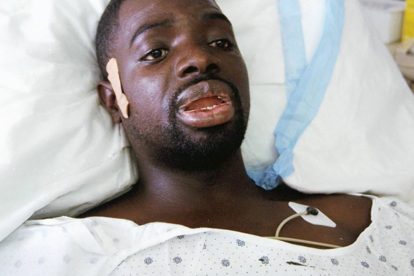

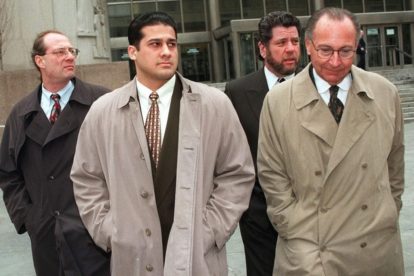
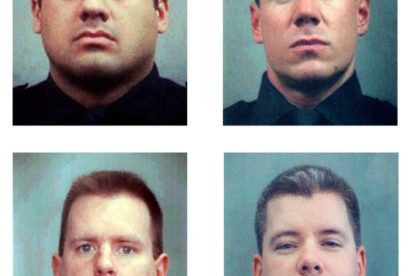
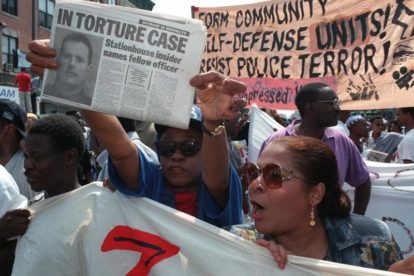
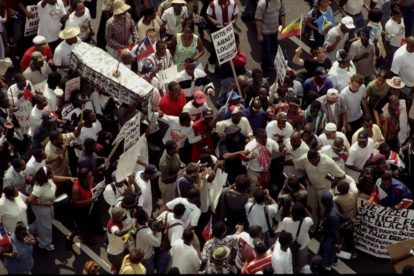
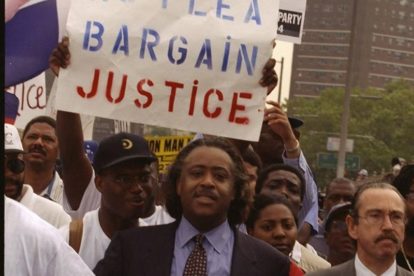
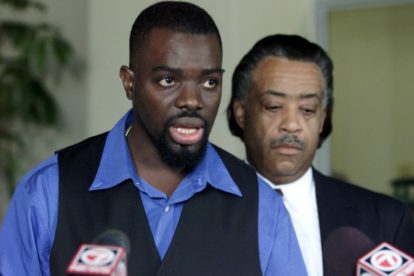

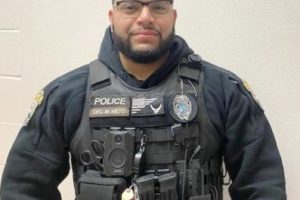












![Sunday On Chad’s Instagram! 😩😂🇭🇹
[ See Our Previous Post ]
🎥 @ochocinco
#lunionsuite #haitianamerican #haitian #chadochocinco](https://scontent-yyz1-1.cdninstagram.com/v/t51.75761-15/486064093_18500558206023307_3804672392637993767_n.jpg?stp=dst-jpg_e35_tt6&_nc_cat=106&ccb=1-7&_nc_sid=18de74&_nc_ohc=WoAPC1t_7cUQ7kNvgGv0HH4&_nc_oc=AdkO8pwYMdEH98JcDXdVLRYB4d-pfoKlTjf2-RqK-5Y1LMkt0xWne6JRJevr1o611jY&_nc_zt=23&_nc_ht=scontent-yyz1-1.cdninstagram.com&edm=AM6HXa8EAAAA&_nc_gid=53wrCCEloAsIcUYbme5jeQ&oh=00_AYHFR8auWmwD7u-Det8su7-DrCo5GrvqCkzHWugvosMGYQ&oe=67E7F03B)







